Rethinking Happiness to Increase Our Well-Being
This is an in-depth review of The Science of Well-Being course by Yale University with Professor Laurie Santos.
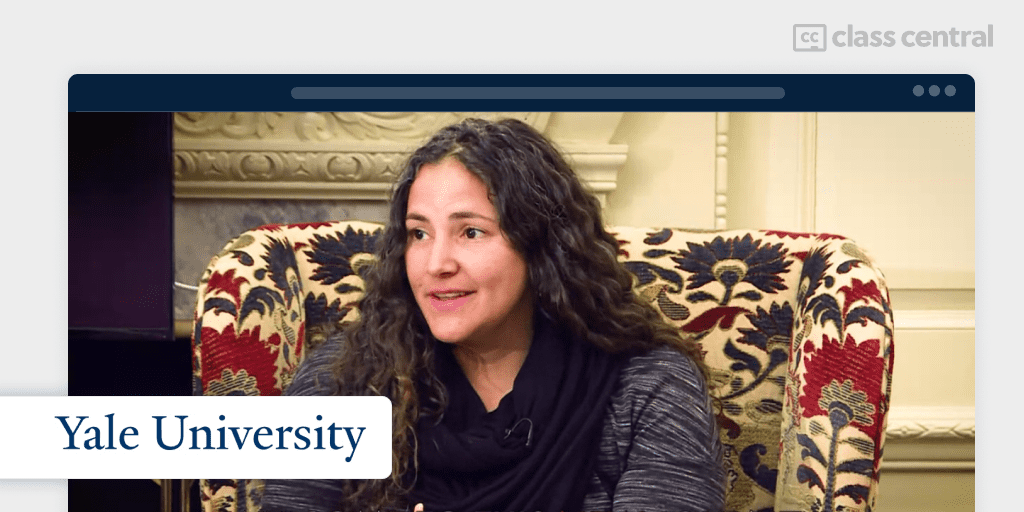
The Science of Well-Being, offered by Yale University on Coursera, is an insightful course introducing practices to increase our well-being. Like most of us, my lifestyle significantly changed at the height of the pandemic. By spending most of the day at my apartment alone for months, I gradually began to question my personal values on happiness and wondered how I can increase my sense of fulfillment. So, I decided to enroll in this 10-week course, hoping that I can learn some insights to improve my well-being.
This course has also been featured in:
- [2023] The 250 Most Popular Online Courses of All Time
- Class Central’s Best Online Courses of All Time (2022 Edition)
Understanding What Makes Us Happy
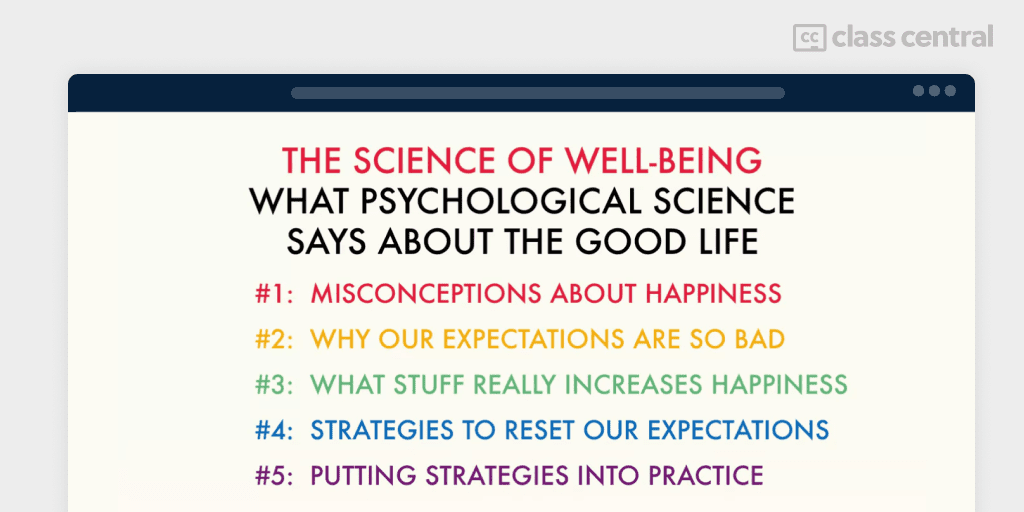
Although we generally believe that a good job, awesome stuff, or true love will make ourselves happy, psychologists advocate that this is an illusion. Professor Laurie Santos argues that they stop bringing you the happiness you expect and rest your reference point for the future, because you habituate with your high salary, fancy car, and partner. Throughout the course, she discusses why we have such misconceptions about happiness and how we can overcome our biases. After introducing what really increases our well-being, Professor Santos suggests strategies to develop habits to put them into practice. The encouraging finding in psychology is that we can work forward to improve our well-being, because actions and thoughts control 40% of our happiness.
For sure, some of the recommended rewirements, practices to increase our happiness, were rather common sense. I knew from my experiences that regular physical exercise, meditation, and good sleep improve my well-being. Still, what was interesting with this course is that all the suggestions were based on evidence from psychological research. For example, academic research using a brain scanner has shown that meditation not only increases your happiness via shutting off the default mode of mind wandering but also strengthens our brain over time. These empirical research findings increase my confidence and motivation to put them into practice.
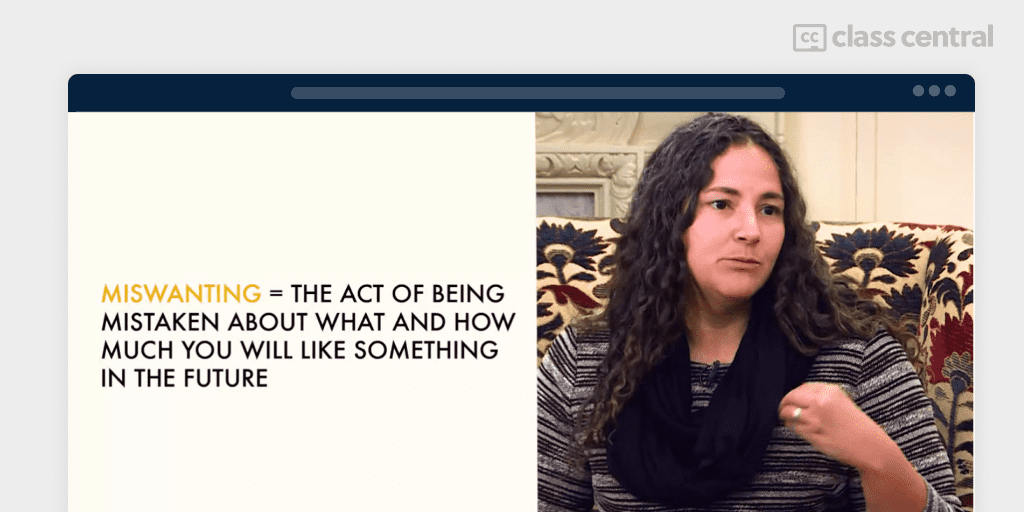
On the other hand, some of the findings were counter intuitive. For example, investments on experiences will make you happier than purchasing materials. My intuition was that material possessions such as a fancy new car will continue to bring happiness in the future. However, Professor Santos argued that while we habituate to a new car, a nice vacation will end well before we get used to it. In fact, when I recall my good memories in the past, vacations, especially the ones I spent with my family or friends, came on top of my list and certainly not the things I purchased for myself.
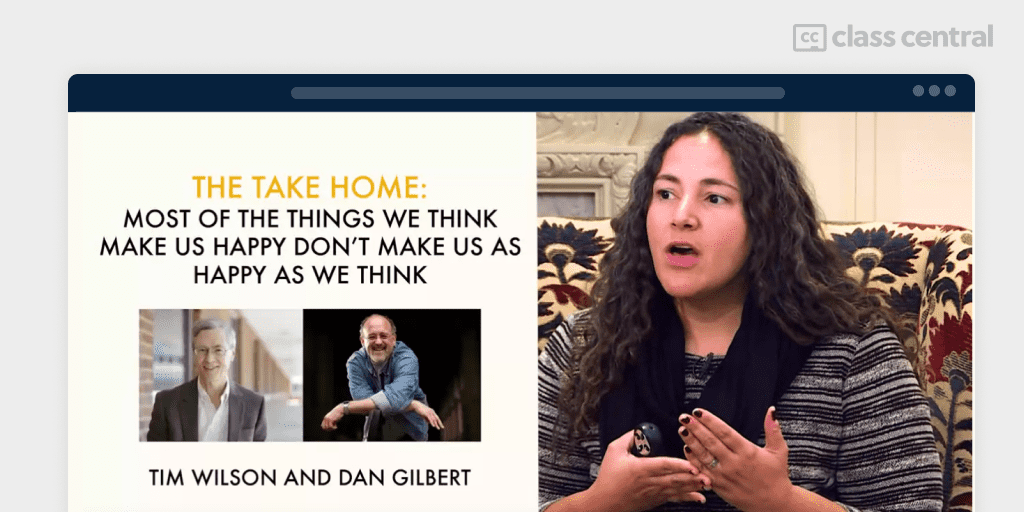
Furthermore, Professor Santos gave a fresh perspective on what can make you call a dream job. Instead of seeking high salaries, we should look for jobs that actively use our signature strengths, character strengths most essential to who we are. The act of using those strengths raises our happiness and lowers depressive symptoms, which in turn increases our productivity and job satisfaction. In fact, a good understanding of my signature strengths after taking a free self-assessment introduced in the course certainly gave me a new and interesting angle on how to approach my work differently.
Practicing What Makes Us Happy
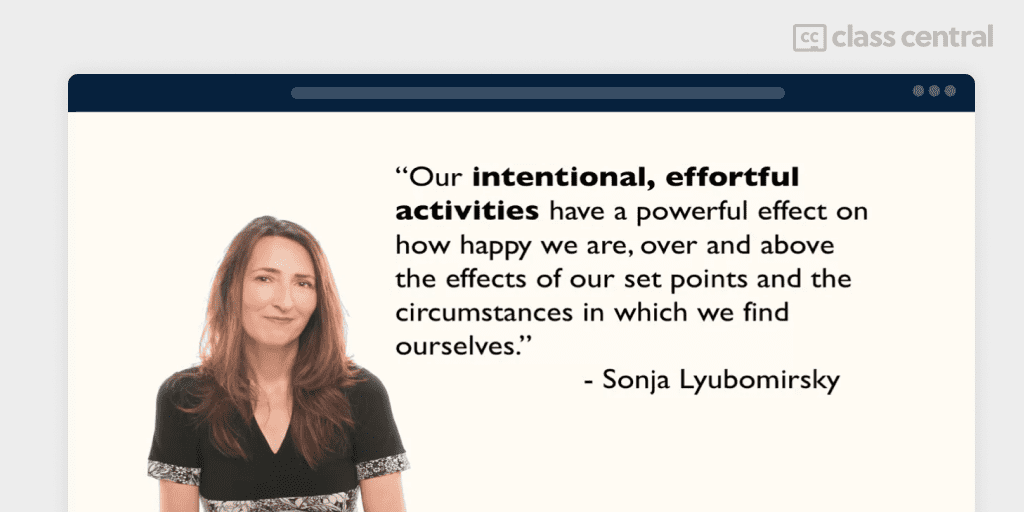
The last four weeks were devoted to practicing our favorite rewirement taught in the course. While I chose signature strength, my challenge was to practice it every day, which became apparent during the last week on the project. The positive momentum and enthusiasm can fade surprisingly quickly. I ended up procrastinating, which took me much longer to complete the Rewirement Challenge. This experience revealed that merely knowing something is not enough to put them into practice, which was referred to as the GI Joe fallacy in the first week of this course.
The important lesson was to have strategies for better habits, which was introduced in the sixth week. What I found interesting is that we need to think about the benefits and obstacles of our goal beforehand, if we want to keep overcoming obstacles. My tendency has been either optimistic without considering obstacles, or pessimistic focusing on obstacles, which have limited my potential. Furthermore, we should create beforehand implementation intentions and very specific if-then plans to respond to obstacles, so that we achieve our goal.
Conclusion
Overall, I really enjoyed this 10-week course. The teaching style was very engaging, full of insightful material, which helped me rethink what makes me happy. The recommended reading on signature strength was eye-opening, giving me the courage to confront the root causes of my personal problems and to find solutions for them. Because this course introduces many rewirements to improve your well-being, I am sure you can find something that would meet your preferences. Above all, my happiness score improved over the course. Highly recommended!
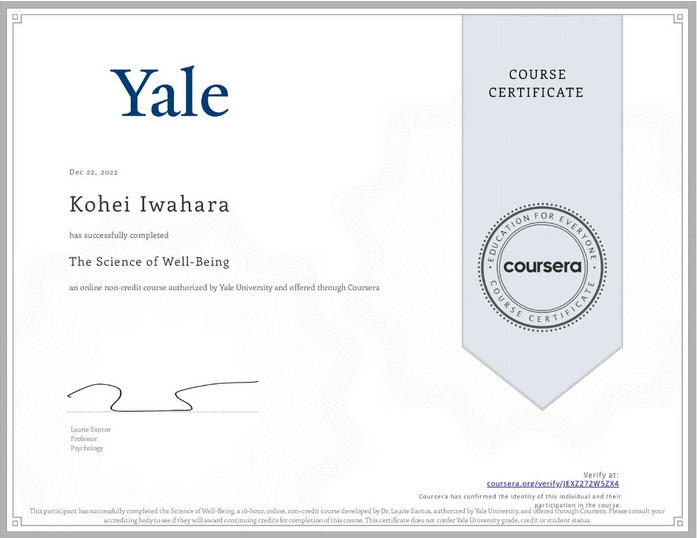







Thanindra
Hi Kihei san
Thanks a lot for sharing. I’m aap joined and learn the same course with Dr Laurie and enjoy life more.
It’s our mindfulness to know that we are lucky and we shall be happy proud and grateful of what we have , who we are and what we can do to make ourselves and others to be better and happier too.
Happiness peace and love be with you and everyone. Thanindra ❤️